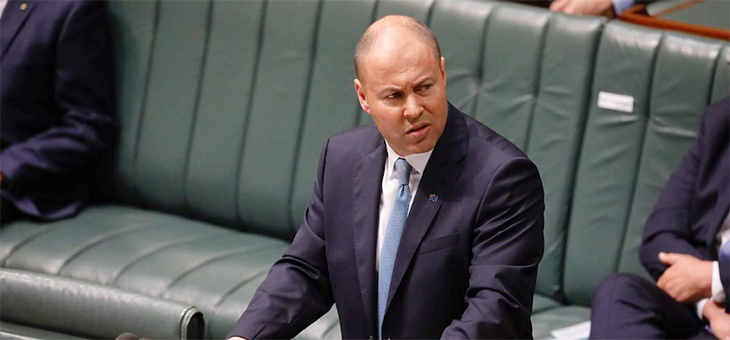Tonight the Australian government will tell you how it’s going to spend your money over the next four years.
Treasurer Josh Frydenberg will deliver the federal budget at 7:30pm AEST.
But if you don’t know your forward estimates from your fiscal outlook, here’s a guide to catch you up.
What is the federal budget?
Essentially it’s like any household budget, but instead of family you have to live with the whole of Australia.
Every year the federal government looks at how much money it has coming in (income) and how much money it has going out (expenses).
Australia has a lot of expenses: health, education, defence, transport, debts that need paying off.
The biggest expense is social security and welfare; payments like the Age Pension, family tax benefit, child care subsidies and JobSeeker.
So where does Australia get the money to pay for this? Taxes.
But people and businesses don’t really like paying taxes, so the budget also involves figuring out who has to pay what.
That can get a little complicated – you might end up paying less for child care, but get stung with a bigger tax bill because you’ve made more money this year.
And it’s not just your hip pocket that’s impacted by the budget.
Services and infrastructure you use, like roads, the internet, hospitals and schools, can all be better or worse off depending on how much money they get.
It really is the moment when we learn what the next 12 months are going to look like for Australia financially.
Didn’t we just have a budget?
Yes. Last year’s federal budget was held in October due to the uncertainty of the coronavirus pandemic.
The budget is usually handed down on the second Tuesday in May.
It’s worth noting all the budget fun doesn’t happen on just one day.
The opposition gives its budget reply on Thursday in Parliament, then the government tends to go on a bit of a tour around the country to promote its spending.
Then there’s the mid-year budget review in December which is like a financial check-up on how things are going so far.
What are forward estimates?
The budget will set out spending for the next financial year, which is from July 1, 2021 to June 30, 2022.
It will also forecast, or predict, what the government’s income and expenses will be for the following three financial years until mid-2025.
These are the forward estimates, and they’re not set in stone by any means.
In 2019, Mr Frydenberg declared the budget was “back in black” with a surplus forecast for 2019-2020.
Even then the promise of a surplus looked shaky because the government was relying on several things to happen over the year.
It definately relied on a one-in-a-100-year global pandemic not happening.
So while forward estimates are a good indication of how a government plans to manage its money, tomorrow is promised to no-one – not even the Treasurer.
What is the budget lock-up?
The budget lock-up is when journalists are locked in a room in Parliament House for several hours so they can read the budget papers.
It also gives them time to prepare stories that accurately reflect the government’s spending plan.
The rules of the lock-up are strict – no mobile phones or smart watches, no internet, no contact with the outside world.
Media organisations are only allowed to report on what’s in the budget when the Treasurer starts speaking in Parliament.
Those who breach the embargo may be banned from future lock-ups and face serious legal consequences.
 © 2020 Australian Broadcasting Corporation. All rights reserved.
© 2020 Australian Broadcasting Corporation. All rights reserved.
ABC Content Disclaimer

